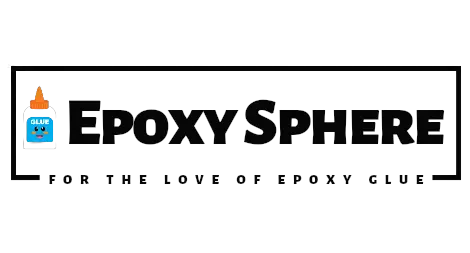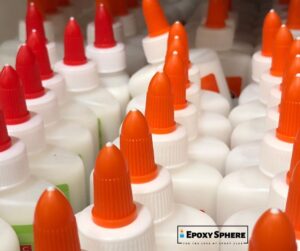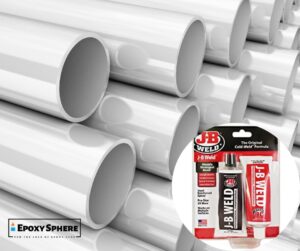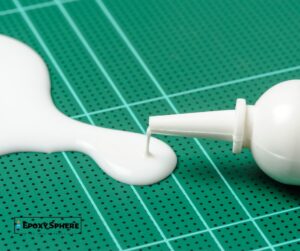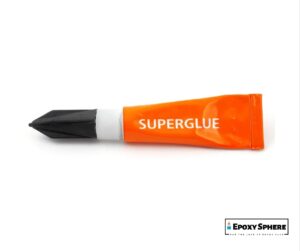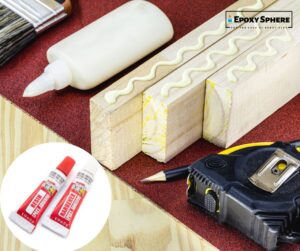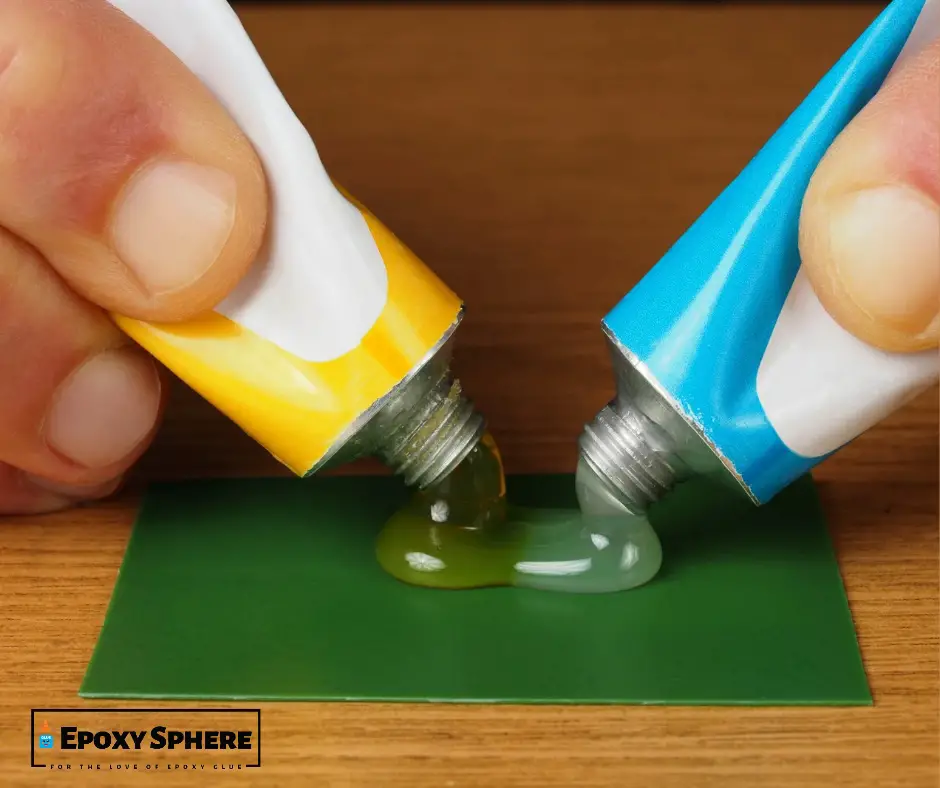
Epoxy is a chemical compound commonly used to attach pieces of metal together. It’s powerful, but it’s hard to work with. So what is the difference between Epoxy and glue?
While you might not be aware, there are a couple of differences between both products. Also, there are several similarities between these two products: we use both for gluing purposes.
However, one key difference between Epoxy and glue is that glue isn’t always permanent; sometimes, it can be removed by washing off or scraping away at the area where it was applied.
Difference Between Epoxy and Glue
Epoxy and glue are pretty different. Here are some differences to be aware of:
Epoxy is a chemical compound, and glue is a sticky substance. Glue is usually used for sticking things together, while we can use Epoxy for bonding or gluing. Epoxies are challenging to remove, while we can remove most glues with water.
Ingredients making up each product
When it comes right down to it, the main difference is that Epoxy is a chemical compound, and glue isn’t. If you’re wondering why two seemingly similar products have such different chemical compositions, the answer lies in how they were made.
Glue often comes from natural ingredients, while Epoxy is often created in a lab by scientists blending two separate compounds with different properties to create something new and improved.
This means that epoxy bonds are better than glue because their molecules are more tightly bound. It also means that Epoxy is more potent than glue and, therefore, able to withstand more stress before breaking apart or separating from whatever surface it’s attached to.
Consistency
Epoxy and glue are two different adhesives. Epoxy is a liquid that hardens into a solid, while glue is more of a liquid than Epoxy. Epoxy is made by mixing two or more liquids. These liquids then heat together to create a thin, transparent liquid.
To sum up, Epoxy comes as a thick paste, and glue can be found in tiny granules or even in a liquid form like honey.
Form
In contrast, glue is a single compound that is directly applied to an object. Epoxy can be used by combining resin and a hardener according to the needs of the user. It’s important to note that Epoxy does not stick to wet surfaces, and it needs curing time in order for it to set correctly.
Also, mixing Epoxy can be tricky. If you mix too many of your compounds, the reaction can lead to excessive heating, which can lead to improper curing, cracking, and excessive bubbles.
Shearing strength
Another essential quality of Epoxy is its shearing strength. Shearing strength is the amount of force required to break a bond.
Because Epoxy has an extremely high shear resistance, it’s more resistant to breaking apart when subjected to forces such as impacts and sudden changes in temperature.
On the other hand, the glue has a very low shear strength making it susceptible to impact force and sudden changes in temperatures.
In terms of tensile strength, the ability to withstand tension or pull in opposite directions without breaking, the glue has a lower value than Epoxy.
This means that glued materials have less power against pulling forces than their bonded counterparts made with epoxy resins.
The reason for this difference comes down to density: epoxy resins are less dense than glues because they contain fewer solids.
This makes them ideal for applications where lightness and flexibility are needed but there isn’t enough room on your surface area, such as inside cabinets.
Removal process
While Epoxy is stronger at bonding materials than glue, it is more difficult to remove. So if you make a mistake during the application or there is a spill, you might have a hard time riding your surface off it. However, you can rely on acetone or GBL to help remove Epoxy with a lot of hard work.
Glue can be easily removed either with acetone or GBL. Other powerful chemical solvents can also help you dissolve glues in no time. However, care should be taken when removing either Epoxy or glue.
Application process
In terms of application, Epoxy and glue are very different. Epoxy is applied in a thin layer, whereas we usually use glue in a thick layer. Glue can be applied with a brush or roller, whereas we can generally apply Epoxy with a paintbrush.
We can use epoxies for many applications where glues would either not work at all or wouldn’t last very long. Also, they’re more expensive than regular glues.
Drying time
With drying time, Epoxy has the edge. Epoxy dries extremely fast, and you can use it for underwater repairs or underwater bonding wood. However, this also depends on the type of Epoxy you are using. The glue takes longer because it’s made from natural ingredients.
Which Is Better: Epoxy Or Glue?
The truth is, it comes down to what you need from your adhesives. On paper, both types of adhesives are great at creating strong bonds, which is suitable for most gluing jobs. In the end, glue is easier to work with, while Epoxy provides you with much strength.
Is Epoxy Permanent?
You can think of epoxy glue as being a permanent adhesive. It’s a bit more permanent than regular glue but not it’s not entirely permanent. Epoxy gives you a long-lasting effect that can simulate permanent bonding.
Epoxy is a chemical compound that has two components. When mixed, these two components react to produce a substance that is often transparent and water-resistant. After hardening, it becomes hard to remove, leading to the notion of it being a permanent glue.
Is Epoxy Stronger Than Glue?
Epoxy tends to have higher strength levels than most glues because several chemical compounds work together in each batch.
Epoxy is a chemical compound, which means it’s made up of two or more elements that are bonded together to form one substance. Glue, on the other hand, is not a compound; it’s just an adhesive made out of one element.
While Epoxy can be used for many purposes, it can harden into rubberlike materials and can even be molded into shapes; glue generally isn’t as versatile in its applications.
Conclusion
In conclusion, Epoxy and glue are both strong adhesives with many uses. They have different forms and drying times, but we can remove both if necessary.
Epoxy can be used on materials such as wood or metal where standard glues would not be strong enough to hold them together. The main difference between these two adhesives comes down to their shear strength.

Hi, This is John Davis. After years of working in the construction industry, I decided to create a website that would provide people with information about glue and its exceptional uses. I hope You find it useful
